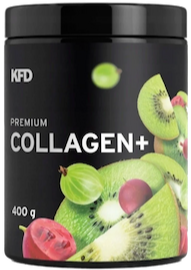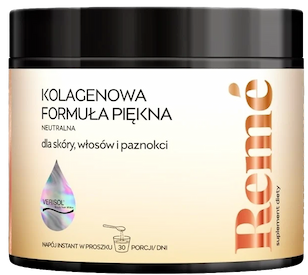Best collagen for tendons 2025 [types, supplements, and tips]
Find out how to choose the perfect collagen supplement to take care of your tendon health.


Learn more about our editorial process
.

Learn more about our editorial process
.

Learn more about our editorial process
.

Learn more about our editorial process
.![Best collagen for tendons 2025 [types, supplements, and tips]](https://cdn-resources.natu.care/uploads/1/kolagen_na_sciegna_hero_35f5bf799d.jpg)
Why you can trust us
Articles on Natu.Care are written based on scientific research, data from government websites and other reliable sources. The texts are written in cooperation with doctors, nutritionists and other health and beauty experts. Articles are reviewed before publication and during significant updates.
.Learn more about our editorial process
.Information about advertisements
Content on Natu.Care may contain links to products from the sale of which we may receive a commission. When creating content, we adhere to high editorial standards and take care to be objective about the products discussed. The presence of affiliate links is not dictated by our partners, and we select the products we review ourselves completely independently.
.Learn more about our terms and Conditions
.Tendon injuries take many weeks to heal. Is it possible to speed up this process by supplementing collagen?
Tendons are peculiar tissues - on the one hand strong and resilient, on the other quite flexible (although not as flexible as muscles). Like any connective tissue, their main building block is collagen. However, contrary to what you may read on the internet, type II collagen is not at all dominant in them.
From this article you will learn:
- What types of collagen are most important for tendon health.
- What to look out for when choosing collagen for tendons.
- Will collagen heal a ruptured tendon.
- What, besides collagen, improves tendon health.
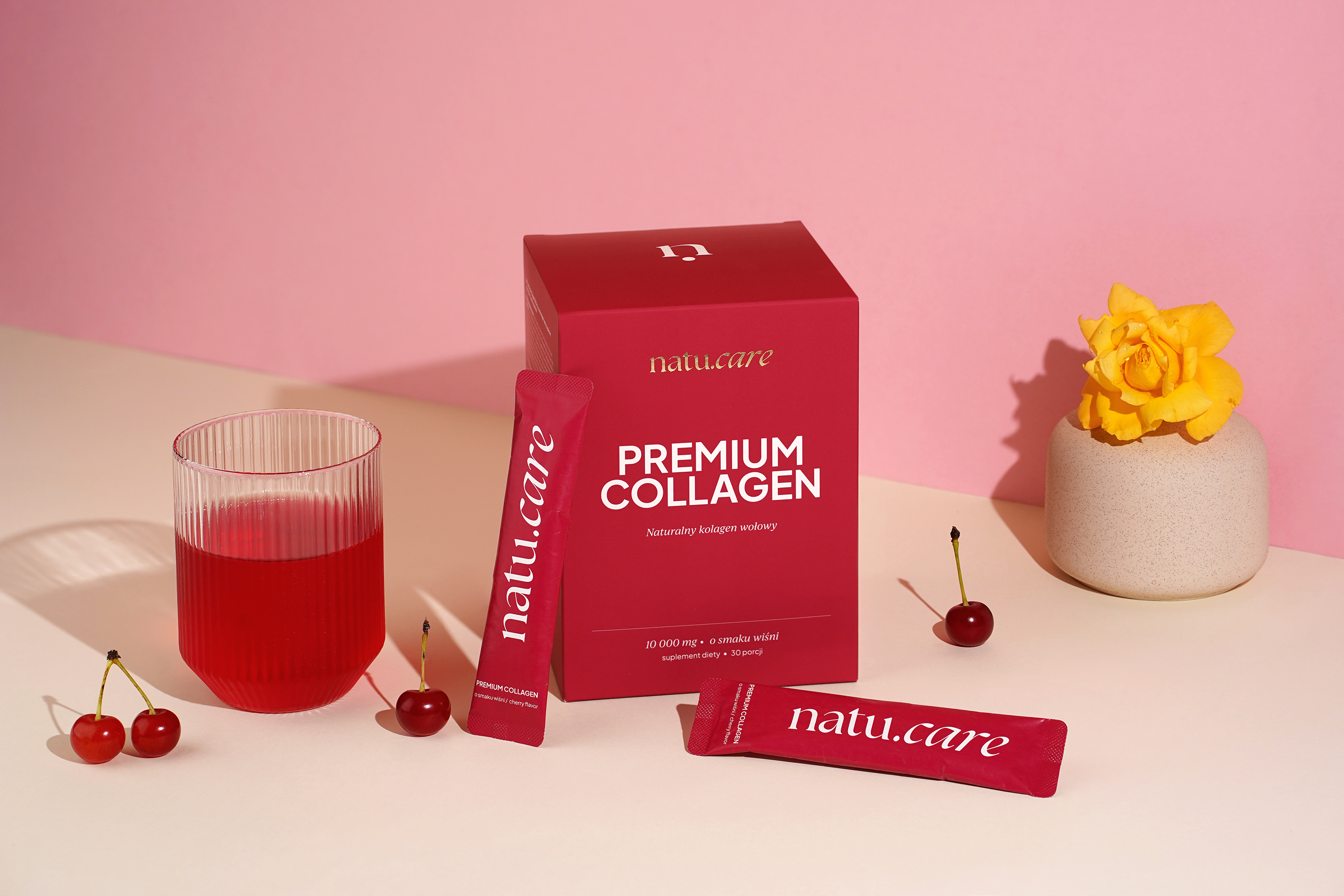
Sprawdź, jak może on zadbać o zdrowie Twoich stawów i urodę! Kolagen Premium (10 000 mg) wiśnia
Natu.Care Kolagen Premium Sport 10000 mg, wiśnia
Natu.Care Kolagen Premium dla zdrowia stawów, skóry, paznokci i włosów. Wołowy kolagen w optymalnej dawce 10 000 mg. Przebadany przez niezależne laboratorium.
Sprawdź cenę
Ten kolagen dobrze się rozpuszcza, super smakuje – jak taki soczek wiśniowy. Moje włosy przestały wypadać, są gęstsze i zdrowsze a cera promienna.@Dominika P.
See also:
- Which collagen is best?
- Collagen for tennis elbow
- Collagen for athletes
- Collagen for runners
- Collagen for joints
- Collagen for bones
- Collagen for wrinkles
- Facial collagen
- Collagen for skin
- Collagen for acne
- Collagen for scars
- Collagen for cellulite
- Collagen for stretch marks
- Hair collagen
- Collagen for nails
What type of collagen will help tendons?
The dominant type of collagen that tendons are made of is type I - it makes up more than 85% of their dry weight. It is what gives tendons their strengthand. With type I collagen in tendons, type III collagen works together to give them the necessary elasticity. Types II, VI, IX, XI and XII are also present, but their amounts are much smallerand.
It is the correct ratio of type I collagen to type III collagen that determines whether a tendon will be more rigid or more flexible and stretchable.

Ilona Krzak Master of Pharmacy
If you want to improve tendon health, look for collagen dietary supplement type I or types I and III.
Also pay attention to the form in which collagen is found. The best absorbed is collagen hydrolysate, in which large collagen molecules have been broken down into smaller and easier to digest collagen peptidesand.
However, a key aspect in improving tendon function is the daily portion of collagen you provide yourself during supplementation. Research suggests that you should take at least 2,500 mg of collagen per day to achieve results. By taking smaller doses, you will have to wait much longer for resultsand.
Fish collagen for tendons
You already know what types and forms of collagen to look for in formulations. Now it is time to mention the origin.
The most popular collagens on the market are fish collagens (also called marine collagen) and beef collagens. Both types, if they are of good quality and certified, will do the job. But fish collagen has a certain advantage.
Fish collagen molecules are much closer to the collagen found in the human body than their bovine-derived counterparts. As a result - according to research - marine-derived collagen is absorbed into the body up to 50% more efficientlyand.
Best collagens for tendons - ranking
Criteria for selection:
- Daily serving of collagen - choose a supplement containing at least 2.5 grams of collagen per daily serving. Supplements containing between 5 and 10 grams will be optimal.
- Collagen type - type I collagens and blends of types I and III are best for tendons.
- Collagen form - hydrolysed collagens have a lower molecular weight, so they are more easily absorbed into the body.
- Additional active ingredients - the action of collagen is perfectly complemented by vitamin C, which stimulates its natural synthesis.
- Purity of formulation - look for formulations free of heavy metals and other contaminants. In the best dietary supplements, the purity of the composition is confirmed by laboratory tests performed at independent institutes.
- Taste - it is said that a person will eat anything if it should make him feel better from it. But why bother when you can pick through delicious flavour options. Here you will see the full criteria.
Natu.Care Collagen Premium 5000 mg, mango-maracuja

- Collagen content: 5000 mg marine collagen hydrolysate
- .
- Additional active ingredients: vitamin C, low molecular weight hyaluronic acid (and L-theanine and coenzyme Q10 in cocoa flavoured collagen or vitamin A and vitamin E in mango–passion fruit flavoured collagen)
- .
- Form: powder sachets
- .
- Dose: 1 sachet per day
- .
- Sufficient for: 30 days
- .
Product description
Fish collagen from the Natu.Care brand in a dose of 5000 mg. The formula contains a sufficient portion of the active substance to positively affect your joints, musculoskeletal system and immunity.
Take care of your tendons, joint cartilage, ligaments, muscles and even bones by supplying them with the building blocks to function properly. Move without bólu and provide the necessary support for any physical activity.
And as a „gratis” to regular supplementation, you will also receive firm skinóhand, healthy and shiny hair and strong nails.
Natu.Care Premium Collagen is available in two flavours – Cacao Bloom and Rise&Shine. Both formulas are based on the following active ingredients: marine collagen hydrolysate, wild roseóbud extract and hyaluronic acid.
Additionally, Cacao Bloom contains natural L-theanine, coenzyme Q10 and defatted Dutch cacao. Rise&Shine instead contains vitamin E and vitamin A.
These are the best collagens in the world.
These best fish collagens on the market also rós taste – Cacao Bloom is a treat for chocolate lovers. Rise&Shine will appeal to those whoóenjoy the refreshing taste of mangoófruit and passion fruit.
Pros and cons
Fish collagen from the Natu.Care brand in a dose of 5000 mg. The formula contains a sufficient portion of the active substance to positively affect your joints, musculoskeletal system and immunity.
Take care of your tendons, joint cartilage, ligaments, muscles and even bones by supplying them with the building blocks to function properly. Move without bólu and provide the necessary support for any physical activity.
And as a „gratis” to regular supplementation, you will also receive firm skinóhand, healthy and shiny hair and strong nails.
Natu.Care Premium Collagen is available in two flavours – Cacao Bloom and Rise&Shine. Both formulas are based on the following active ingredients: marine collagen hydrolysate, wild roseóbud extract and hyaluronic acid.
Additionally, Cacao Bloom contains natural L-theanine, coenzyme Q10 and defatted Dutch cacao. Rise&Shine instead contains vitamin E and vitamin A.
These are the best collagens in the world.
These best fish collagens on the market also rós taste – Cacao Bloom is a treat for chocolate lovers. Rise&Shine will appeal to those whoóenjoy the refreshing taste of mangoófruit and passion fruit.
Additional information
Fish collagen from the Natu.Care brand in a dose of 5000 mg. The formula contains a sufficient portion of the active substance to positively affect your joints, musculoskeletal system and immunity.
Take care of your tendons, joint cartilage, ligaments, muscles and even bones by supplying them with the building blocks to function properly. Move without bólu and provide the necessary support for any physical activity.
And as a „gratis” to regular supplementation, you will also receive firm skinóhand, healthy and shiny hair and strong nails.
Natu.Care Premium Collagen is available in two flavours – Cacao Bloom and Rise&Shine. Both formulas are based on the following active ingredients: marine collagen hydrolysate, wild roseóbud extract and hyaluronic acid.
Additionally, Cacao Bloom contains natural L-theanine, coenzyme Q10 and defatted Dutch cacao. Rise&Shine instead contains vitamin E and vitamin A.
These are the best collagens in the world.
These best fish collagens on the market also rós taste – Cacao Bloom is a treat for chocolate lovers. Rise&Shine will appeal to those whoóenjoy the refreshing taste of mangoófruit and passion fruit.
User review
Fish collagen from the Natu.Care brand in a dose of 5000 mg. The formula contains a sufficient portion of the active substance to positively affect your joints, musculoskeletal system and immunity.
Take care of your tendons, joint cartilage, ligaments, muscles and even bones by supplying them with the building blocks to function properly. Move without bólu and provide the necessary support for any physical activity.
And as a „gratis” to regular supplementation, you will also receive firm skinóhand, healthy and shiny hair and strong nails.
Natu.Care Premium Collagen is available in two flavours – Cacao Bloom and Rise&Shine. Both formulas are based on the following active ingredients: marine collagen hydrolysate, wild roseóbud extract and hyaluronic acid.
Additionally, Cacao Bloom contains natural L-theanine, coenzyme Q10 and defatted Dutch cacao. Rise&Shine instead contains vitamin E and vitamin A.
These are the best collagens in the world.
These best fish collagens on the market also rós taste – Cacao Bloom is a treat for chocolate lovers. Rise&Shine will appeal to those whoóenjoy the refreshing taste of mangoófruit and passion fruit.
Natu.Care Collagen Premium 10000 mg, cherry

- Collagen content: 10,000 mg of hydrolyzed bovine collagen
- Additional active ingredients: vitamin C, low molecular weight hyaluronic acid, glucosamine, chondroitin, extract of Indian frankincense resin (boswellia serrata)
- Form: powder sachets for drinking
- Serving: 1 sachet per day
- Lasts for: 30 days
Product description
One of the strongest collagens on the market, providing as much as 10,000 mg per daily serving. This product can effectively support the condition of joints, skin, hair, and nails.
With this supplement, you will support your skeletal and joint system as well as your beauty, helping you visually halt the aging process and feel rejuvenated!
Pros and cons
Pros:
- The daily portion of collagen is very large – as much as 10,000 mg.
- Proven collagen formula – COLLinstant, whose effectiveness has been confirmed in clinical studies.
- Effective dose of hyaluronic acid, which additionally moisturizes the skin and positively affects joint health.
- Vitamin C supports the body's natural collagen production.
- Glucosamine is a fundamental building block of compounds found in joint cartilage and a component of collagen that gives elasticity to connective tissue in tendons.
- Chondroitin is a natural component found in the human body, mainly in cartilage. This large molecule (mucopolysaccharide) has the ability to absorb water, which helps maintain the elasticity and resilience of cartilage.
- Frankincense resin extract supports blood circulation and joint mobility and reduces their stiffness. It may help alleviate inflammatory conditions.
- The composition has been tested by the independent and accredited J.S. Hamilton laboratory.
Cons:
- None.
Additional information
Users praise Natu.Care Collagen Premium for the easy dissolving of the powder.
ALLDEYNN Collarose Fish
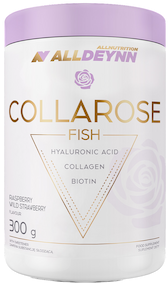
- Collagen content: 5000 mg hydrolysate fish collagen VERISOL F® .
- Additional active ingredients: vitamin C, hyaluronic acid, biotin
- Form: powder to dissolve in water .
- Dose: one scoop (6 g) of powder daily .
- Sufficient for: 50 days .
Product description
Atlantic cod collagen VERISOL F® contained in the formula are easily absorbed collagen peptides of fish origin. Regular supplementation can firm your skinóhand and slow down the ageing process. Your nails will become stronger and stop breaking. The addition of biotin will improve the condition of your hairów. The collagen portion is high enough to also have a good effect on your joints, muscles and bones.
Pros and cons
Atlantic cod collagen VERISOL F® contained in the formula are easily absorbed collagen peptides of fish origin. Regular supplementation can firm your skinóhand and slow down the ageing process. Your nails will become stronger and stop breaking. The addition of biotin will improve the condition of your hairów. The collagen portion is high enough to also have a good effect on your joints, muscles and bones.
Additional information
Atlantic cod collagen VERISOL F® contained in the formula are easily absorbed collagen peptides of fish origin. Regular supplementation can firm your skinóhand and slow down the ageing process. Your nails will become stronger and stop breaking. The addition of biotin will improve the condition of your hairów. The collagen portion is high enough to also have a good effect on your joints, muscles and bones.
Expert and user opinion
Atlantic cod collagen VERISOL F® contained in the formula are easily absorbed collagen peptides of fish origin. Regular supplementation can firm your skinóhand and slow down the ageing process. Your nails will become stronger and stop breaking. The addition of biotin will improve the condition of your hairów. The collagen portion is high enough to also have a good effect on your joints, muscles and bones.
DuoLife Collagen fish collagen 2500 mg
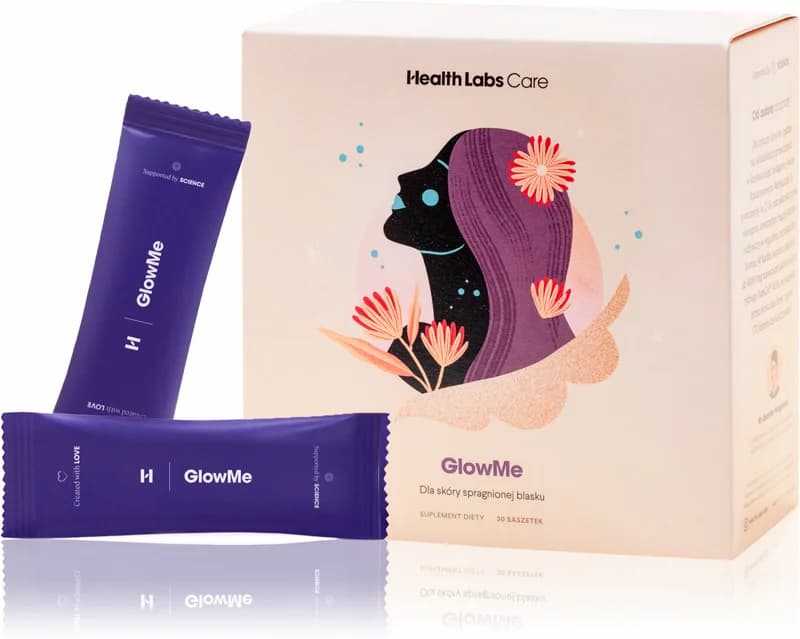
- Collagen content: 2500 mg collagen
- Additional active ingredients: vitamin C, silicon, glucosamine, hyaluronic acid, nettle and bamboo extracts
- Form: liquid to drink .
- Dose:25 ml .
- Sufficient for: 30 days .
Product description
100% natural collagen liquid without unnecessary ingredientsós. The composition of ingredientsós improves the appearance and condition of skinóry, hairów, nails. DuoLife is a good choiceór if you notice the first signs of skinóry ageing or want to stop this process. A tasty liquid, convenient to use.
Pros and cons
100% natural collagen liquid without unnecessary ingredientsós. The composition of ingredientsós improves the appearance and condition of skinóry, hairów, nails. DuoLife is a good choiceór if you notice the first signs of skinóry ageing or want to stop this process. A tasty liquid, convenient to use.
Additional information
100% natural collagen liquid without unnecessary ingredientsós. The composition of ingredientsós improves the appearance and condition of skinóry, hairów, nails. DuoLife is a good choiceór if you notice the first signs of skinóry ageing or want to stop this process. A tasty liquid, convenient to use.
User review
100% natural collagen liquid without unnecessary ingredientsós. The composition of ingredientsós improves the appearance and condition of skinóry, hairów, nails. DuoLife is a good choiceór if you notice the first signs of skinóry ageing or want to stop this process. A tasty liquid, convenient to use.
Pharmovit liquid collagen 10000 mg
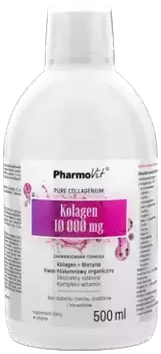
- Collagen content: 10000 mg hydrolysed bovine collagen types I and III .
- Additional active ingredients: hyaluronic acid, natural plant extracts, vitamin C, B vitamins, zinc, vitamin D
- Form: vials .
- Dose: 25 ml .
- Sufficient for: 20 days .
Product description
A solid daily dose of collagen for jointómuscle and bone health and beauty. The duo of collagen and vitamin C has a positive effect on each other, so that „the protein of youth” is better absorbed and more efficiently produced in the body.
Pros and cons
A solid daily dose of collagen for jointómuscle and bone health and beauty. The duo of collagen and vitamin C has a positive effect on each other, so that „the protein of youth” is better absorbed and more efficiently produced in the body.
Additional information
A solid daily dose of collagen for jointómuscle and bone health and beauty. The duo of collagen and vitamin C has a positive effect on each other, so that „the protein of youth” is better absorbed and more efficiently produced in the body.
KFD Premium Collagen+
Product description
High dose of collagen and a real bomb of vitamins C and D and organic sulphur. With this preparation the effects will come immediately. You will improve the firmness of your skin and reduce wrinkles. Your hair and nails will be strong and shiny.
A generous dose of collagen will improve the mobility of your jointsós, benefit your bone system and muscles. Do you do sports and need a product thatós able to keep up with your needs? This product will do the trick.
Pros and cons
High dose of collagen and a real bomb of vitamins C and D and organic sulphur. With this preparation the effects will come immediately. You will improve the firmness of your skin and reduce wrinkles. Your hair and nails will be strong and shiny.
A generous dose of collagen will improve the mobility of your jointsós, benefit your bone system and muscles. Do you do sports and need a product thatós able to keep up with your needs? This product will do the trick.
Additional information
High dose of collagen and a real bomb of vitamins C and D and organic sulphur. With this preparation the effects will come immediately. You will improve the firmness of your skin and reduce wrinkles. Your hair and nails will be strong and shiny.
A generous dose of collagen will improve the mobility of your jointsós, benefit your bone system and muscles. Do you do sports and need a product thatós able to keep up with your needs? This product will do the trick.
Expert opinion
High dose of collagen and a real bomb of vitamins C and D and organic sulphur. With this preparation the effects will come immediately. You will improve the firmness of your skin and reduce wrinkles. Your hair and nails will be strong and shiny.
A generous dose of collagen will improve the mobility of your jointsós, benefit your bone system and muscles. Do you do sports and need a product thatós able to keep up with your needs? This product will do the trick.
Product description
The dietary supplement from Remé contains beef collagen in a patented formula and vitamin C, whichóra aids its absorption. The formula comes in three flavours: neutral, orange-maracuja and strawberry-pomegranate. The formula can effectively support and improve the condition of the skinóry, hairóry and nails.
Pros and cons
The dietary supplement from Remé contains beef collagen in a patented formula and vitamin C, whichóra aids its absorption. The formula comes in three flavours: neutral, orange-maracuja and strawberry-pomegranate. The formula can effectively support and improve the condition of the skinóry, hairóry and nails.
Additional information
The dietary supplement from Remé contains beef collagen in a patented formula and vitamin C, whichóra aids its absorption. The formula comes in three flavours: neutral, orange-maracuja and strawberry-pomegranate. The formula can effectively support and improve the condition of the skinóry, hairóry and nails.
The dietary supplement from Remé contains beef collagen in a patented formula and vitamin C, whichóra aids its absorption. The formula comes in three flavours: neutral, orange-maracuja and strawberry-pomegranate. The formula can effectively support and improve the condition of the skinóry, hairóry and nails.
Product tiles contain affiliate links. As An Amazon Partner, I earn from qualifying purchases.
{ product:fyjLpBuQHhzwzRvwxSI3V }}
See also:
- Drinking collagen
- Liquid collagen
- Collagen powder
- Collagen tablets
- Collagen in capsules
- Collagen in sachets
Is it worth taking collagen for ruptured tendons?
Collagen supplementation for ruptured tendons can accelerate the healing process of tendon fibres, which are mainly made up of collagen. As research suggests, you'll get the best results from tendon regeneration by taking a combination of collagen and vitamin Cand.
This is because vitamin C is involved in the natural synthesis of collagen proteins in the body. This makes it an ideal complement to the regenerative properties of collagen.
Vitamin C reduces oxidative stress and adhesion formation between the tendon and surrounding tissues. In vitro studies on tenocyte-fibroblast cultures found in tendons showed that cells treated with vitamin C maintained a large pool of procollagen.

Ilona Krzak Master of Pharmacy
Interesting fact
When a tendon ruptures, the body sends fibroblasts (collagen-producing cells) to the damaged area. As early as five days after the injury, the migrating fibroblasts begin to synthesise the collagen needed to regenerate the ruptured tissue. This local collagen production continues uninterrupted for about five weeks, and the type of collagen produced first is type Iand.
Because type I collagen is a major component of the extracellular matrix of the tendon, the structural and mechanical properties of tendon tissue depend largely on the quantity and quality of type I collagen.

Ilona Krzak Master of Pharmacy
Tendon rupture is a long-healing and extremely unpleasant injury. It is mainly suffered by professional athletes and soldiers, but it can actually happen to anyone.
Tendon rupture is a long-healing and extremely unpleasant injury.
Treatment consists mainly of immobilising the injured limb. Under these conditions, the tendon may knit together on its own. In some cases, it is necessary to surgically suture the distal ends of the tendon together. Adequate rehabilitation is also necessary for full recoveryand.
See also:
Other supplements for tendons
In addition to collagen, mucopolysaccharides also have a beneficial effect on tendons. These chemical compounds are responsible, among other things, for the hydration of the tissues or the proper circulation of blood and lymphand.
The most common mucopolysaccharide is hyaluronic acid. Many collagen dietary supplements are enriched with this active ingredient. If you want to provide it to the body in a larger portion, you can bet on a preparation in which hyaluronic acid will be the main ingredient.
See also:
What are the differences between tendons and ligaments?
The main difference that distinguishes tendons from ligaments is their function. Tendons are a type of tissue that connects muscles to bones. Ligaments, on the other hand, connect bones to each other, reinforcing the structure of joints. Tendon tissue is fibrous and much more flexible than bands of stiff ligament tissue.
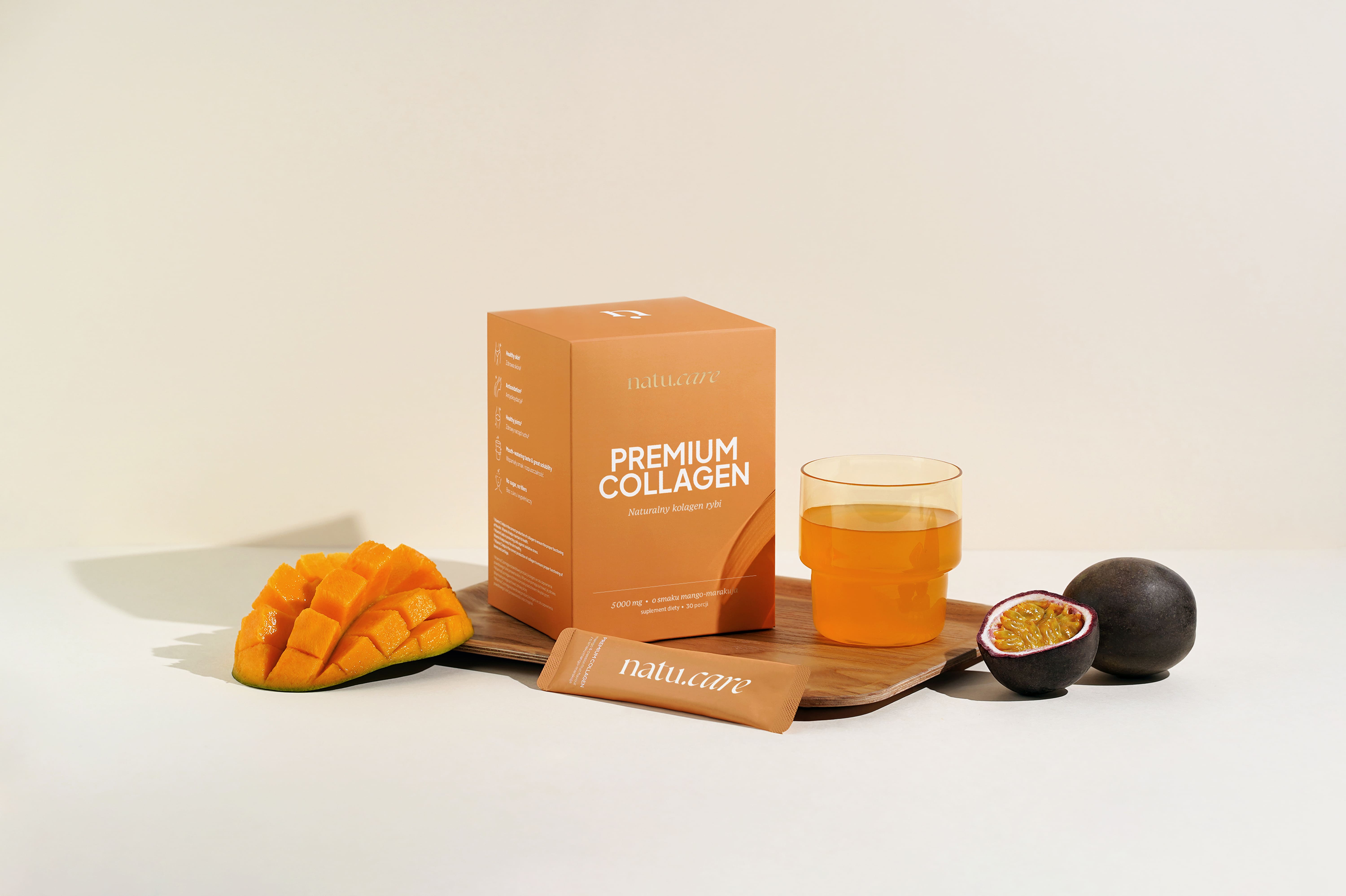
Sprawdź, za co pokochały go tysiące klientek Kolagen Premium 5000 mg, mango-marakuja
Natu.Care Kolagen Premium 5000 mg, mango-marakuja
Natu.Care Kolagen Premium dla zdrowia stawów, skóry, paznokci i włosów. Najlepsza przyswajalność. Optymalna dawka 5 000 lub 10 000 mg. Przebadany przez niezależne laboratorium.
Zobacz więcej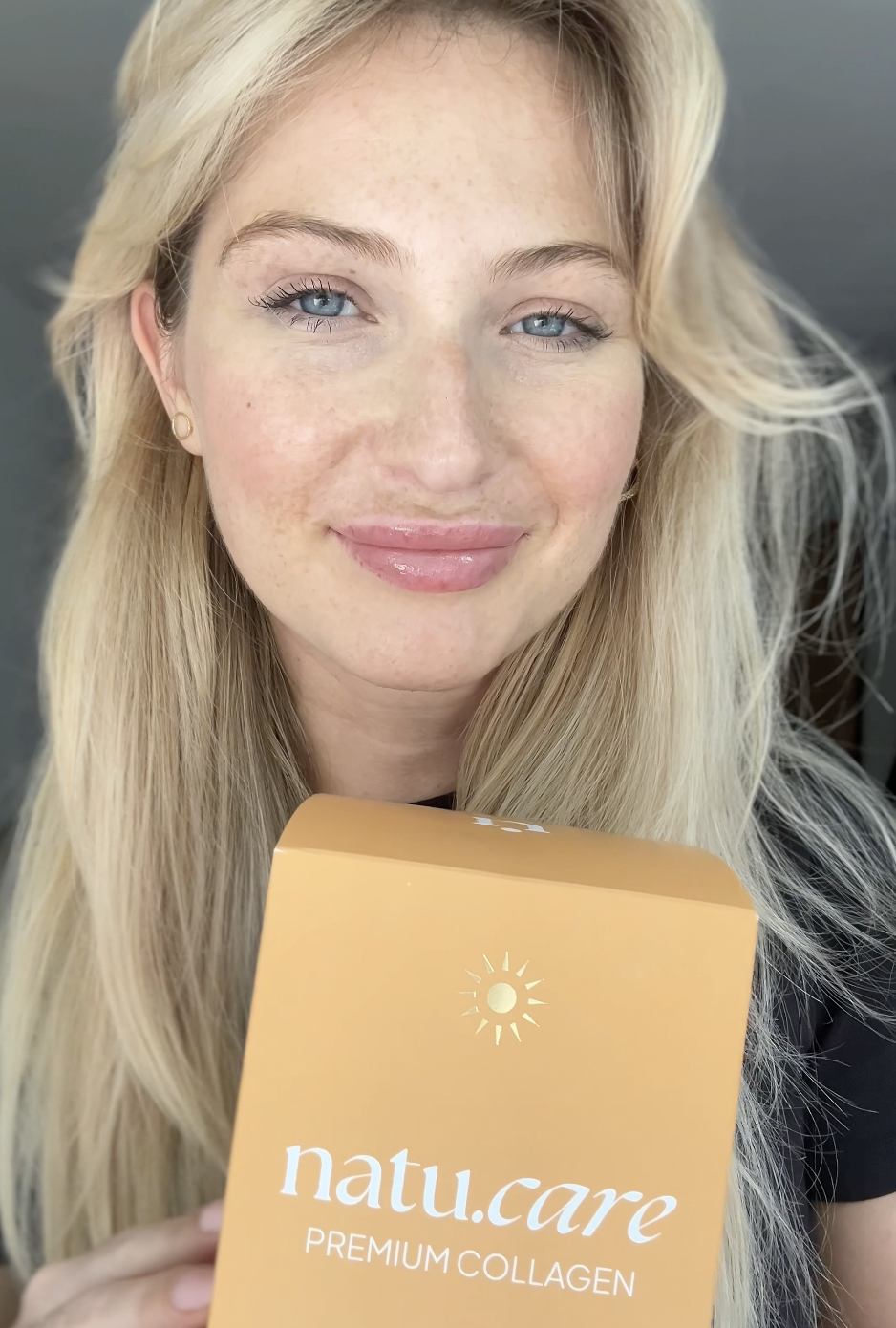
Wybrałam kolagen Natu.Care, ponieważ miał super opinie – a to było dla mnie bardzo ważne! Odkąd go stosuję, moja skóra znacznie się poprawiła i jest nawilżona, a na głowie pojawiły się nowe "baby hair".@Kasia S.
See also:
- The most powerful collagen
- Collagen deficiency
- Contraindications to collagen supplementation
- What destroys collagen
- What is collagen
- When to drink collagen
- How to rebuild collagen
- Human horse collagen: a doctor's opinion
- Grandmother's ways for joints
Summary
- Key for tendons is type I collagen and (to a lesser extent) type III.
- When choosing a collagen preparation, pay attention to its form, source and daily dose. The best will be fish collagen hydrolysate in a daily dose of 5-10 grams.
- Collagen supplementation.
- Collagen supplementation (especially in combination with vitamin C) can help with tendon tissue regeneration, speeding up the healing process.
- Tendon health can also benefit from mucopolysaccharides such as hyaluronic acid.
FAQ
Is collagen good for joints?
.Yes, collagen is good for joints. Especially type II collagen, which is crucial to their health. Scientific studies have shown that supplementation with collagen type II can reduce joint pain and improve joint function.
Regular consumption of collagen can help maintain healthy joint cartilage structure. Remember to combine supplementation with a balanced diet and regular physical activity.
Is fish collagen allergenic?
.Yes, fish collagen can sensitise people who have fish and seafood allergies. Other ingredients can also be allergenic, whether they are active ingredients, used for flavour or to get the right texture.
Before starting collagen supplementation check the ingredients of your product for substances to which you are allergic.
Does collagen help your knees?
.Yes, collagen supplementation can help maintain the health of joints, including the knees. Collagen is the main component of the connective tissue that forms joint cartilage. As we age, the body's production of collagen decreases, which can lead to joint deterioration. To take care of them, you can take collagen in supplement form, such as Natu.Care Premium Collagen.
Collagen vs vitamin C - is it worth combining?
.Yes, it is worth combining collagen with vitamin C. Vitamin C is crucial for collagen synthesis - without it, the process is hampered. In addition to this, it has an antioxidant effect and helps to protect the skin from free radical damage. Therefore, the combination of these two ingredients can provide optimal benefits for health and beauty.
What do collagen deficiencies mean?
.Collagen deficiencies in the body mean that your body is not producing enough of this protein, which is crucial to the health of skin, hair, nails and joints. This can lead to wrinkles, brittle nails, weakened hair and joint pain.
Can everyone take collagen?
.Collagen is a protein that occurs naturally in the body. We also consume it every day in meat, for example. Despite this, there are some people who should beware of collagen dietary supplements. These include pregnant and lactating women, people with kidney and liver conditions, some autoimmune diseases and those with gastrointestinal problems.
How many types of collagen are there?
.Today scientists distinguish 28 types of collagen in the human body. However, that doesn't mean they won't find more - a dozen years ago, almost half as many were known. The most crucial collagen types for the human body are type I, type II and type III.
Sources
.See all
.Buckley, M. R., Evans, E. B., Matuszewski, P. E., Chen, Y.-L., Satchel, L. N., Elliott, D. M., Soslowsky, L. J., & Dodge, G. R. (2013). Distributions of types I, II and III collagen by region in the human supraspinatus tendon. Connective Tissue Research, 54(6), 374-379. https://doi.org/10.3109/03008207.2013.847096
Collagen Type 3-An overview | ScienceDirect Topics. (n.d.). Retrieved February 23, 2023, from https://www.sciencedirect.com/topics/medicine-and-dentistry/collagen-type-3
Ge, Z., Tang, H., Chen, W., Wang, Y., Yuan, C., Tao, X., Zhou, B., & Tang, K. (2020). Downregulation of type I collagen expression in the Achilles tendon by dexamethasone: A controlled laboratory study. Journal of Orthopaedic Surgery and Research, 15(1), 70. https://doi.org/10.1186/s13018-020-01602-z
Hijlkema, A., Roozenboom, C., Mensink, M., & Zwerver, J. (2022). The impact of nutrition on tendon health and tendinopathy: A systematic review. Journal of the International Society of Sports Nutrition, 19(1), 474. https://doi.org/10.1080/15502783.2022.2104130
Hudson, D. M., Archer, M., Rai, J., Weis, M., Fernandes, R. J., & Eyre, D. R. (2021). Age-related type I collagen modifications reveal tissue-defining differences between ligament and tendon. Matrix Biology Plus, 12, 100070. https://doi.org/10.1016/j.mbplus.2021.100070
Jafari, H., Lista, A., Siekapen, M. M., Ghaffari-Bohlouli, P., Nie, L., Alimoradi, H., & Shavandi, A. (2020). Fish Collagen: Extraction, Characterization, and Applications for Biomaterials Engineering. Polymers, 12(10), Article 10. https://doi.org/10.3390/polym12102230
Jaques, L. B. (1978). The nature of mucopolysaccharides. Medical Hypotheses, 4(2), 123-135. https://doi.org/10.1016/0306-9877(78)90056-7
Liu, S. H., Yang, R. S., al-Shaikh, R., & Lane, J. M. (1995). Collagen in tendon, ligament, and bone healing. A current review. Clinical Orthopaedics and Related Research, 318, 265-278.
Maffulli, N., Moller, H. D., & Evans, C. H. (2002a). Tendon healing: Can it be optimised? British Journal of Sports Medicine, 36(5), 315-316. https://doi.org/10.1136/bjsm.36.5.315
Murray, R. K. (1932-). (2008). Harper's Biochemistry Illustrated. 1477161 II. https://www.bibliotekacyfrowa.pl/dlibra/publication/27939/edition/35105
Nistor, L. (1981). Surgical and non-surgical treatment of Achilles Tendon rupture. A prospective randomized study. JBJS, 63(3), 394.
Shoulders, M. D., & Raines, R. T. (2009). Collagen Structure and Stability. Annual Review of Biochemistry, 78(1), 929-958. https://doi.org/10.1146/annurev.biochem.77.032207.120833
Type I Collagen-An overview | ScienceDirect Topics. (n.d.). Retrieved February 23, 2023, from https://www.sciencedirect.com/topics/biochemistry-genetics-and-molecular-biology/type-i-collagen
Wu, M., Cronin, K., & Crane, J. S. (2023). Biochemistry, Collagen Synthesis. In StatPearls. StatPearls Publishing. http://www.ncbi.nlm.nih.gov/books/NBK507709/
de Miranda, R. B., Weimer, P., & Rossi, R. C.. (2021). Effects of hydrolyzed collagen supplementation on skin aging: A systematic review and meta-analysis. International Journal of Dermatology, 60(12), 1449-1461. https://doi.org/10.1111/ijd.15518
Dermatological expertise on an eight-week lasting clinical-dermatological application test with hydration determination using a corneometer. Nutricoll Marine Collagen Peptide Powder (3 kDa). (2017). Seagarden AS. https://seagarden-norway.com/wp-content/uploads/2017/08/Nutricoll-Marine-Collagen-Study_Methodology-Info.pdf
.García-Coronado, J. M., Martínez-Olvera, L., Elizondo-Omaña, R. E., Acosta-Olivo, C. A., Vilchez-Cavazos, F., Simental-Mendía, L. E., & Simental-Mendía, M. (2019). Effect of collagen supplementation on osteoarthritis symptoms: A meta-analysis of randomized placebo-controlled trials. International Orthopaedics, 43(3), 531-538. https://doi.org/10.1007/s00264-018-4211-5
Gunawan1*, I., Widayati1, R. I., Riyanto1, P., Budiastuti1, A., Malik1, D. A., Muslimin1, Widyawati1, & Suhartono2, A. (20230202). The Effectiveness of Oral Fish Collagen Supplementation on Skin Aging: A Systematic Review and Meta-analysis of Skin Hydration, Skin Elasticity, and Skin Wrinkles. American Journal of Dermatological Research and Reviews, 6. https://doi.org/10.28933/ajodrr-2023-01-0505ig
Jalili, Z., Jalili, F., Moradi, S., Bagheri, R., Moosavian, S. P., Naeini, F., Mohammadi, H., Ghoreishy, S. M., Wong, A., Travica, N., Kermani, M. A. H., & Jalili, C. (2023). Effects of collagen peptide supplementation on cardiovascular markers: A systematic review and meta-analysis of randomised, placebo-controlled trials. British Journal of Nutrition, 129(5), 779-794. https://doi.org/10.1017/S0007114522001301
Pu, S.-Y., Huang, Y.-L., Pu, C.-M., Kang, Y.-N., Hoang, K. D., Chen, K.-H., & Chen, C. (2023). Effects of Oral Collagen for Skin Anti-Aging: A Systematic Review and Meta-Analysis. Nutrients, 15(9), Article 9. https://doi.org/10.3390/nu15092080
Jelonek, L. (2023). Collagen. Everything you need to know (B. Turczynski, ed.; 1st ed.). Natu.Care. https://books.google.com/books?vid=9788396887801
..
Editorials
Meet the team

Ilona Krzak obtained her Master of Pharmacy degree from the Medical University of Wrocław. She did her internship in a hospital pharmacy and in the pharmaceutical industry. She is currently working in the profession and also runs an educational profile on Instagram: @pani_z_apteki

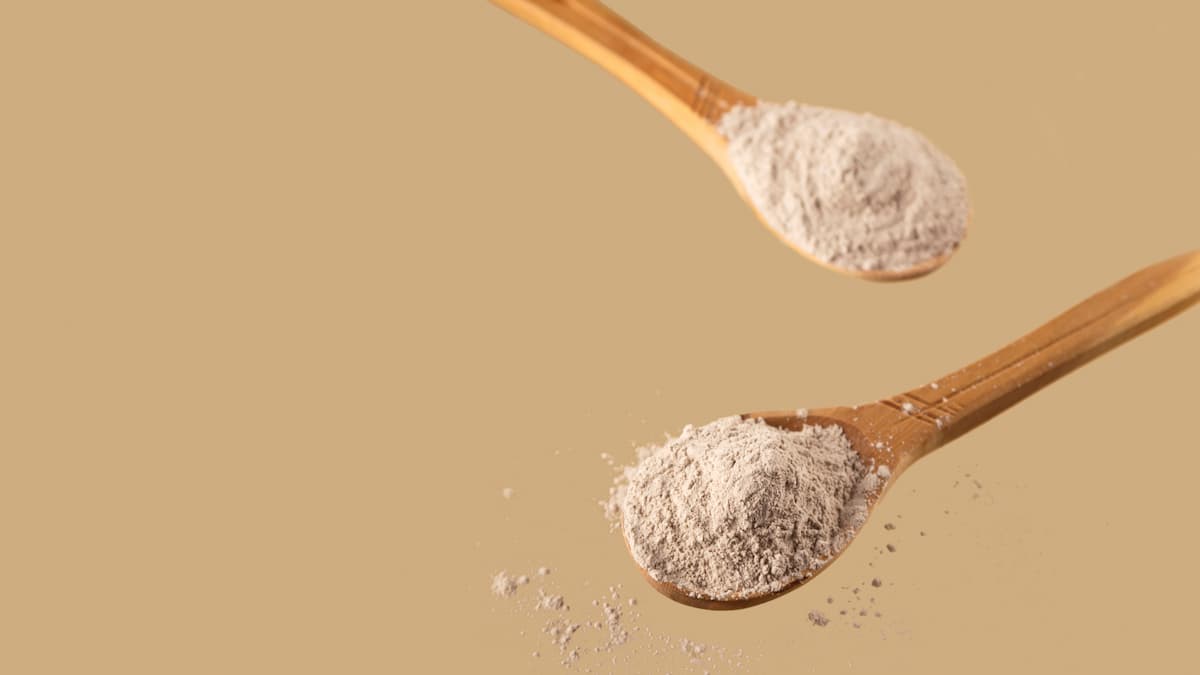
Everything you want to know about COLLinstant collagen.

Collibre collagen is an interesting supplement in shot form.
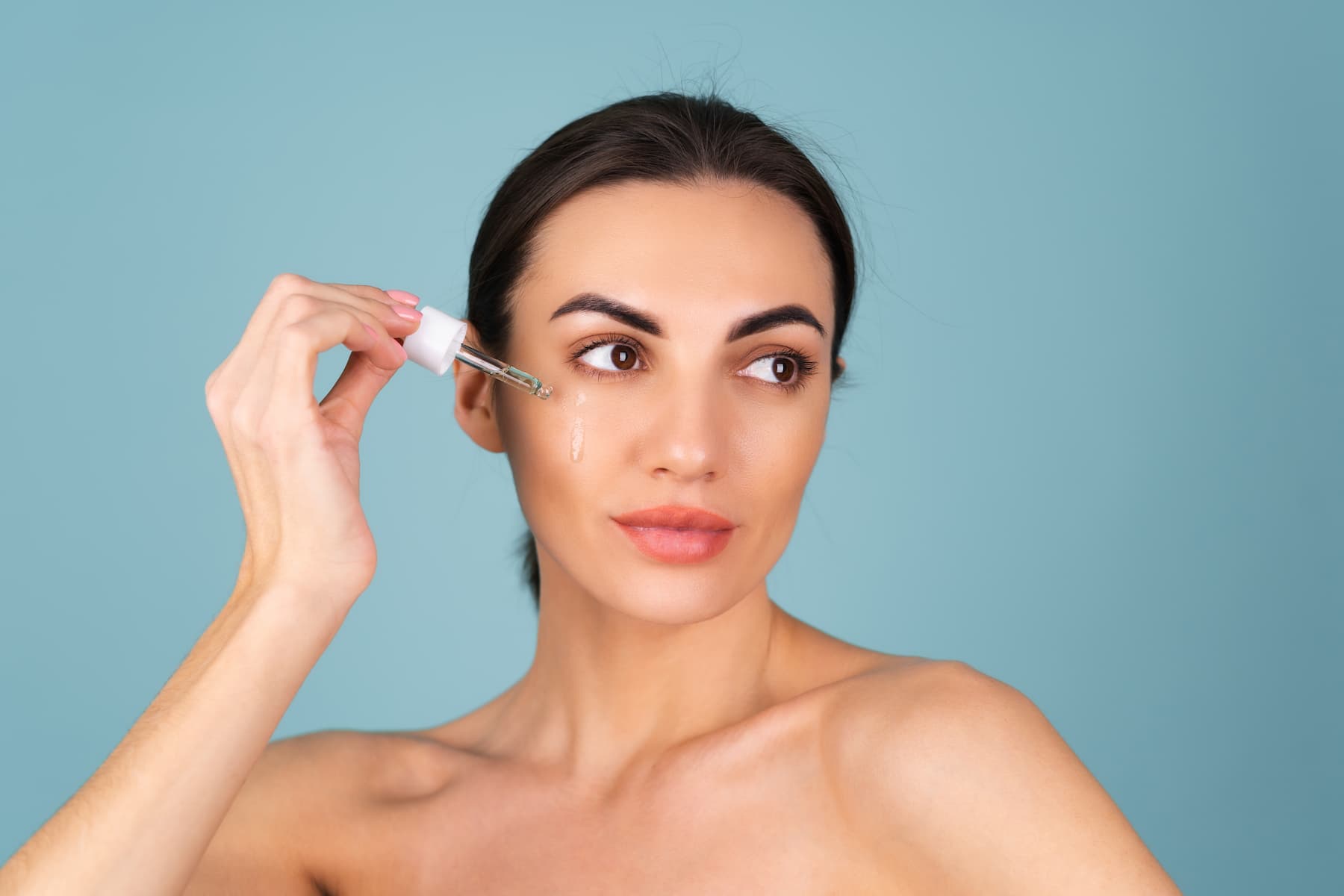
Solgar collagen with hyaluronic acid is a dietary supplement that supports skin and joint health.
